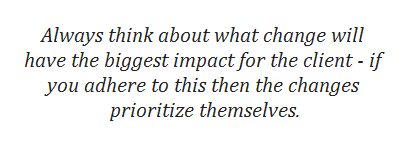This is the 10th in a series of interviews we’re conducting with AdWords advertisers who got unusually high scores using our AdWords Performance Grader. We’re reaching out to high scorers to find out what strategies contribute to their strong AdWords performance. For more in this series, see:
This week’s AdWords expert interview is with Jez Rourke-Pilott, a PPC expert with over 6 years’ experience. Jez is the Client Services Director at Upstream, a leading PPC & SEO agency based in Hove, UK. Follow him on Twitter (@JezRourkePilott) or get connected via LinkedIn.
Tell us a bit about yourself. How long have you been using AdWords? Are you an Agency or an Advertiser? What is your primary goal for AdWords marketing?
I have been using Google AdWords and other PPC platforms now for around 6 years, currently agency side as a “Client Service Director” responsible for ensuring that all our SEO/PPC services are delivered to the client in the best possible way. My primary goal for using PPC differs depending on the client and strategy. I’ve used PPC in the past to generate sales, leads, downloads and also in some cases purely to drive traffic for multivariate or A/B testing.
There are tons of metrics in AdWords – What are your top 3 key performance metrics in AdWords and why?
It’s very hard to restrict to just three top metrics. Personally the metrics I’m most concerned about are Click-Through Rate (CTR), Cost per Click (CPC), Conversions, Cost per Conversion and Conversion Rate. This will sometimes differ depending on the strategy; for example if the objective is to drive traffic then I’d be looking at CPCs, Cost, Clicks, and CTR.
My advice would be to think about the goal of the account and then identify what KPI’s you should be concentrating on to achieve the goal.
Can you describe your AdWords management strategy? How do you set your campaign objectives, and how do you know what’s realistic or not?
Again, management strategy is decided by objectives. The management strategy of a PPC account created purely to drive traffic is significantly different from an account where ROI is the priority. Campaign objectives are normally agreed upon between the client and us after an initial briefing/consultation. It is really important to set expectations from the start – if expectations are unrealistic then you need to ensure the client is aware of this. Through my experience and using data from various sources (web analytics, competitor data, internal data), I’m able to quite accurately forecast the effect of a PPC account. I’d always suggest trying to provide a low, medium and high forecast.
Describe your AdWords management workflow. When you’re doing your account optimization work, how do you decide what to do next in your account? How do you prioritize your work?
It’s all down to experience I’m afraid. You get to know immediately what’s a priority or not. The advice I give our PPC team is to always think about what change will have the biggest impact for the client – if you adhere to this then the changes prioritize themselves. Little impact = low priority, big impact = high priority.
Any advice or tips for AdWords marketers that didn’t score as well as you?
Think big, build a cruise liner not a rowboat!



0 Comments